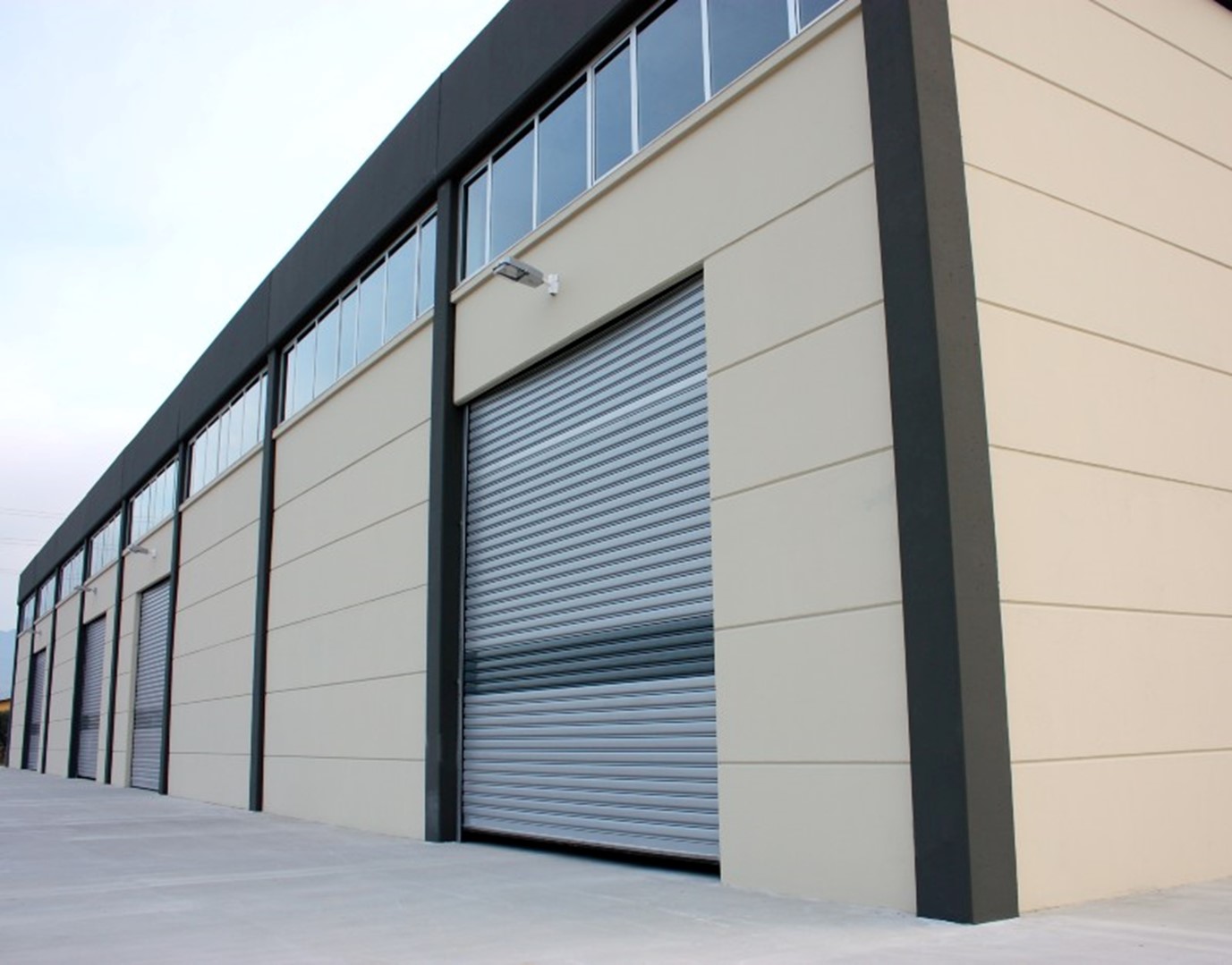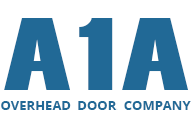Commercial Garage Door FAQ
Commercial Overhead Door FAQ in Jacksonville, FL
Answering Your Frequently Asked Questions

What types of commercial garage doors are available?
- Roll-up doors: Space-saving and durable, these are perfect for businesses with limited space.
- Sectional overhead doors: These open upward and are ideal for warehouses and distribution centers.
- Fire-rated doors: Designed with fire safety in mind, these provide added protection for your business.
- High-speed doors: Great for fast-paced industries demanding quick entry and exit.
How do I know if my commercial garage door needs to be repaired?
Regular maintenance is critical to ensure your commercial garage door operates smoothly and efficiently. Ignoring potential issues can lead to costly repairs or unexpected downtime for your business. You may need repairs if you notice signs such as:
- The door no longer opens or closes smoothly.
- There's visible damage to the panels or tracks.
- Unusual grinding or squeaking noises occur during operation.
- The door feels unstable or unbalanced.
What are the most common commercial garage door repairs?
Regular maintenance and prompt attention to minor issues can help prevent major problems with your commercial garage door. Over time, wear and tear can impact various components, affecting the door's functionality and reliability. At A1A Overhead Door, we frequently encounter issues such as the following:
- Broken springs
- Damaged panels
- Worn-out rollers
- Malfunctioning door openers
- Misaligned tracks
How long do commercial garage doors typically last?
Is it better to repair or replace my commercial garage door?
What materials are commercial garage doors made from?
The material you choose will depend on your business's needs and your desired aesthetics. Common materials customers tend to gravitate towards include the following:
- Aluminum for durability and style.
- Steel for strength and security.
- Fiberglass for rust resistance.
How long does it take to replace a commercial overhead door?
What are the benefits of installing a commercial roll-up door?
Roll-up doors are popular for their durability and space-saving design. They provide excellent security while being easy to operate, making them a practical choice for many commercial applications.
Here are some additional benefits you can enjoy:
• Space-saving design.
• High durability and security.
• Low maintenance requirements.
• Customizable sizes.
Are there any energy-efficient options for commercial garage doors?
How do I maintain my commercial garage door?
Regular maintenance of your commercial garage door ensures its longevity and smooth operation. Neglecting maintenance can lead to costly repairs and reduced functionality over time. You can identify potential issues early by scheduling routine inspections and keeping the door operating efficiently. Good maintenance practices include the following:
- Inspecting tracks, rollers, and springs regularly.
- Cleaning and lubricating moving parts as needed.
- Scheduling annual professional inspections.
Can I customize a commercial garage door to match my business's branding?
Are there warranties for commercial garage doors?
What safety features come with commercial garage doors?
When selecting a garage door for your business, durability, and functionality are critical factors to consider. A door that can withstand harsh weather conditions while maintaining smooth operations is essential. Additionally, the door's design and material should align with your business's specific needs. Security is paramount when choosing a garage door for your business. Standard safety features include:
- Auto-reverse mechanisms to prevent accidents.
- Photo-eye sensors for improved safety.
- Manual override options in case of power outages.
Are there warranties for commercial garage doors?
How do I choose the right commercial garage door for my business?
Choosing the right commercial garage door is crucial for ensuring your business's security, functionality, and aesthetic appeal. Start by assessing the specific needs of your facility, such as the required level of insulation or the frequency of use. Additionally, consider the type of business operations and how the door's features align with your daily requirements. Consider other factors, such as the following:
- Your industry's specific requirements.
- The type of environment (indoor vs outdoor).
- Expected usage frequency.
